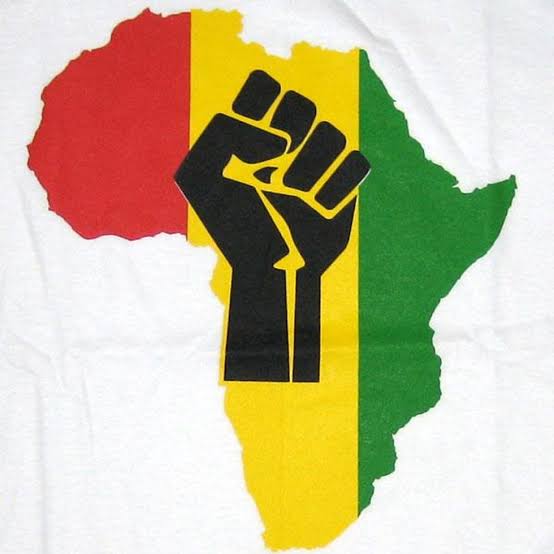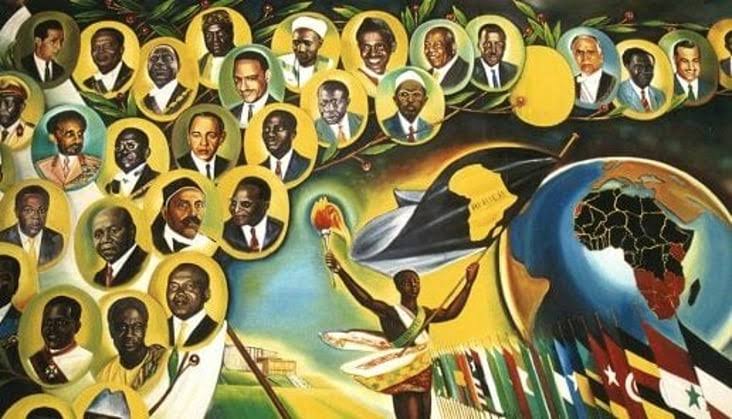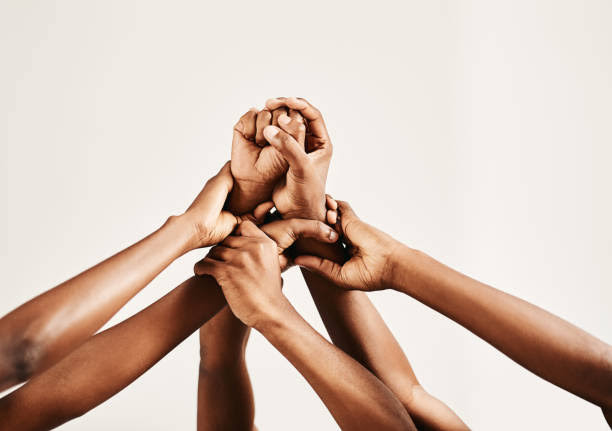Africa’s Unity; A Lie We Like to Tell Ourselves?

INTRODUCTION: The Dream That’s Stuck At The Border
We sing about unity. We toast to Pan-Africanism. We name our children African deep rooted names and chant slogans about brotherhood from Cairo to Cape Town. But try flying from Egypt to South Africa without a visa and you’ll be reminded quickly that the African dream has a passport problem.
The idea of African unity is one of the continent’s most powerful myths. From the hopeful speeches of Kwame Nkrumah to the creation of the African Union, the narrative of a united continent has long been woven into our identity. It sounds good. It feels good. But more often than not, it’s just that, a narrative.
In practice, Africa remains a continent of artificial borders, protectionist policies, and everyday politics that undermine the vision of integration. Whether it’s xenophobic attacks in Johannesburg, trade wars between Ghana and Nigeria, or visa-on-arrival promises that don’t materialize at the airport, unity exists more in declarations than in daily life.
This isn’t just an issue of red tape. It’s a crisis of political will, economic trust, and social cohesion. If Pan-Africanism is to mean anything beyond hashtags and headlines, then the barriers visible and invisible that divide us must be called out and torn down.
THE PROMISE: Pan-africanism On Paper
A. The Vision We Keep Celebrating
From glossy AU summits to Independence Day speeches, the dream of African unity is a recurring chorus. Agenda 2063 promises a “continent with seamless borders,” while ECOWAS touts regional integration and AfCFTA sells a vision of one massive African market—free of trade barriers and rich in opportunity.

Photo Credit: TheAfricaReport
In these documents and declarations, the spirit of Kwame Nkrumah, Thomas Sankara, and Nelson Mandela still echoes. They envisioned a continent that moved as one, politically, economically, and culturally. Their legacy fuels the slogans we repeat: "African solutions to African problems," "One Africa, one people," "Ubuntu."
B. The Reality Check
But the moment you try crossing a border, the illusion cracks. Today, more than 60% of African citizens still need visas to visit other African countries. In some cases, it’s easier to fly to Europe than to a neighboring African state.
What should be a handshake across borders has become a wall of bureaucracy and suspicion. The promises of integration are smothered by paperwork, airport harassment, and elitist double standards. While presidents fly private jets between capitals, everyday Africans are treated as potential criminals at immigration desks across the continent.
Instead of trust, we’ve built fortresses in our foreign ministries, often under the guise of security or national interest.
WHEN AFRICANS TURN ON AFRICANS
A. Xenophobia as Policy and Practice
Unity falters not just at borders but in the streets and too often, the violence comes from within. South Africa has become a tragic symbol of this contradiction. Despite its leadership in continental politics, the country has seen repeated outbreaks of xenophobic attacks, where African migrants particularly Nigerians, Zimbabweans, Malawians, and Somalis are targeted in waves of brutal violence.
And this isn’t limited to South Africa. In Tanzania, political rhetoric around "foreign traders taking over" stokes resentment against East African migrants. Ghana’s retail wars have seen authorities shutter Nigerian-owned shops in the name of protecting local businesses. The language may be diplomatic, but the subtext is clear: not all Africans are welcome.
B. Visa Wars and Border Fights
When borders aren’t closed by bricks and bullets, they’re shut by paperwork and pettiness. Nigeria and Ghana, two of West Africa’s largest economies, have repeatedly clashed over trade restrictions and the treatment of migrants. One moment it’s about imports; the next, it’s about property laws. Beneath it all lies national ego over regional unity.
Further east, tensions between Rwanda and the Democratic Republic of Congo have escalated from diplomatic rifts to outright conflict. Despite AU and regional bodies calling for calm, border closures and tit-for-tat expulsions have become a common response.
And then there’s the ghost of a dream, the African Union passport. Launched with fanfare in 2016, it promised visa-free travel across the continent. Nearly a decade later, it remains a symbolic souvenir for heads of state, not a tool for the average citizen. It’s hard not to ask: Was the AU passport just a PR stunt?
ECONOMIC UNITY? ONLY FOR THE POWERFUL
A. AfCFTA’s Slow Burn
On paper, the African Continental Free Trade Area (AfCFTA) is the most ambitious economic integration project since the AU itself, envisioning a unified market of over 1.4 billion people. But in practice, it’s still crawling. The ink may be dry on the agreement, but tariff reductions, customs cooperation, and mutual recognition of standards are lagging badly behind.
While politicians and trade ministers celebrate milestones at summits, small-scale cross-border traders, especially women face daily harassment, bribes, and bureaucracy. In places like the Nigeria-Benin border or the East African trade corridor, officials exploit paperwork gaps to extract unofficial “fees.” Unity, it seems, is a smoother process for multinational logistics firms than for market women with baskets of yams.
B. Protectionism in Practice
The tension runs deeper than slow implementation—it’s built into the logic of power. Richer or more industrialized economies, like South Africa, Egypt, or Nigeria, often quietly fear an influx of goods and labor from less-developed neighbors. So while regional trade protocols promise openness, local industries lobby hard for protectionist policies, citing job losses and unfair competition.
Across the continent, African businesses and governments still compete more than they collaborate. And until that changes, economic unity will remain a privilege for the powerful, not a pathway for the people.
THE CULTURAL CONTRADICTION
A. Unity in Music, Division in Movement
On the surface, African unity is thriving, at least culturally. From Afrobeats storming global charts to Bongo Flava crossovers, and Nollywood films screened in Kigali and Nairobi, the continent’s creative industries are effortlessly transnational. A Burna Boy collab with a Tanzanian artist or a Ghanaian filmmaker directing in Senegal raises no eyebrows. Art flows. People don’t.
While music videos cross borders in seconds, the artists behind them often need lengthy visa processes to perform just one show in another African country.
It’s a cruel irony: culture moves freer than citizens.
B. Class and Elitism
This contradiction is not just institutional, it’s deeply class-coded. The wealthy and politically connected glide through immigration with diplomatic passports and elite visas, attending Pan-African summits in Addis Ababa or economic forums in Cape Town. Meanwhile, the everyday African, especially if young, poor, or unemployed is treated with suspicion and hostility when trying to cross borders legally.
True unity is not reflected in the VIP lounges or government communiqués, but in how the ordinary citizen is treated at the border, the market, and the workplace.
Until we reconcile this contradiction, between our cultural pride and our political paranoia—Africa’s unity will remain a beautiful slogan undermined by reality.
WHERE DO WE GO FROM HERE?
A. Rethinking the African Identity
If the African Union and national governments won’t lead the charge, perhaps it’s time for a different kind of Pan-Africanism one driven not by diplomats, but by the people.
Unity must evolve beyond flags, anthems, and summit speeches. It must be built around shared realities: digital economies, climate struggles, cultural exports, and a restless youth population that has more in common across borders than within them.

Photo Credit: Istockphoto
B. The Role of Youth and Civil Society
Across the continent, young people and civil society groups are challenging the status quo. Campaigns like #VisaFreeAfrica, launched by the Mo Ibrahim Foundation and amplified by activists, are calling for true freedom of movement, not just diplomatic lip service.
Youth-led organizations are demanding that the AU deliver on its promises, not stall behind red tape. They're pushing for border reforms, open skies agreements, and the implementation of the AfCFTA’s freedom-of-movement protocols. They’re also questioning why national identity should outweigh continental solidarity.
If African unity is to mean anything beyond nostalgia and symbolism, it will need to be reimagined from the ground up—by those who live its contradictions daily and refuse to let Pan-Africanism become a museum piece.
CONCLUSION: Stop Romanticizing, Start Rebuilding
“The real test of Pan-Africanism isn’t on a podium. It’s at the border, in the markets, and in our policies.”
Africa doesn’t lack unity of spirit—it lacks unity of action.
We’ve clapped for slogans, posted the hashtags, and quoted the visionaries. But until an African passport can unlock the continent as easily as an American or European one, Pan-Africanism remains an unfinished promise.
It’s time to stop romanticizing the idea of African unity and start doing the hard work of policy, people-first mobility, and real collaboration. Because unity isn’t just something you declare, it’s something you design, defend, and deliver.
Recommended Articles
Crypto World Buzzes: Yellow Card Enlists Psycho YP as Brand Face

Yellow Card Financial, Africa's rapidly growing crypto exchange, has partnered with Nigerian artist Psycho YP as its new...
E-commerce Giant Jumia Reports Stellar 13% Revenue Surge to $188.9 Million, Driven by Nigerian Market

Africa's e-commerce leader, Jumia Technologies AG, reported a 13% revenue surge in 2025, driven by strong GMV and increa...
Jumia's Bold Exit: Algeria Operations Halted for Profitability Push
Jumia exited Algeria in February 2026, part of a strategy to streamline operations and focus on profitable markets amids...
Africa's Next Big Bet: Tapping into the $12 Billion Decentralized Prediction Market

The global Decentralised Prediction Market (DPM) sector has seen a massive surge, yet Africa, despite its high crypto ad...
Bitcoin Philanthropy: Paxful Co-founder Ray Youssef Funds 100 Nigerian Schools

Ray Youssef, co-founder of Paxful and Built With Bitcoin, discusses the transformative power of peer-to-peer Bitcoin ado...
Microsoft and Women in Tech SA Launch Massive AI Training Initiative Across Africa

The ElevateHer AI programme, a collaboration between Women in Tech South Africa, Absa Group, and Microsoft Elevate, is e...
You may also like...
Super Eagles Fury! Coach Eric Chelle Slammed Over Shocking $130K Salary Demand!
)
Super Eagles head coach Eric Chelle's demands for a $130,000 monthly salary and extensive benefits have ignited a major ...
Premier League Immortal! James Milner Shatters Appearance Record, Klopp Hails Legend!

Football icon James Milner has surpassed Gareth Barry's Premier League appearance record, making his 654th outing at age...
Starfleet Shockwave: Fans Missed Key Detail in 'Deep Space Nine' Icon's 'Starfleet Academy' Return!

Starfleet Academy's latest episode features the long-awaited return of Jake Sisko, honoring his legendary father, Captai...
Rhaenyra's Destiny: 'House of the Dragon' Hints at Shocking Game of Thrones Finale Twist!

The 'House of the Dragon' Season 3 teaser hints at a dark path for Rhaenyra, suggesting she may descend into madness. He...
Amidah Lateef Unveils Shocking Truth About Nigerian University Hostel Crisis!

Many university students are forced to live off-campus due to limited hostel spaces, facing daily commutes, financial bu...
African Development Soars: Eswatini Hails Ethiopia's Ambitious Mega Projects

The Kingdom of Eswatini has lauded Ethiopia's significant strides in large-scale development projects, particularly high...
West African Tensions Mount: Ghana Drags Togo to Arbitration Over Maritime Borders

Ghana has initiated international arbitration under UNCLOS to settle its long-standing maritime boundary dispute with To...
Indian AI Arena Ignites: Sarvam Unleashes Indus AI Chat App in Fierce Market Battle

Sarvam, an Indian AI startup, has launched its Indus chat app, powered by its 105-billion-parameter large language model...
